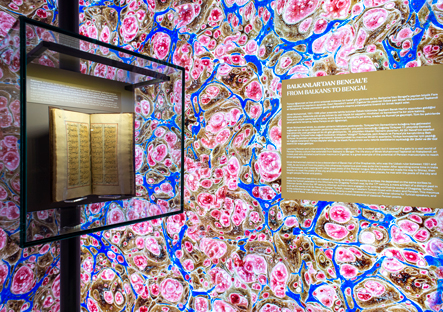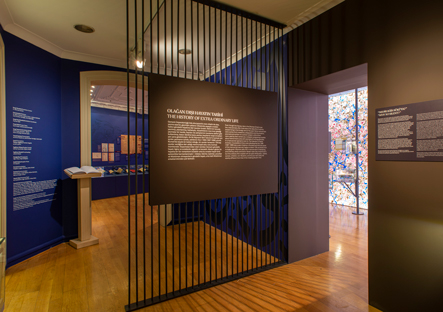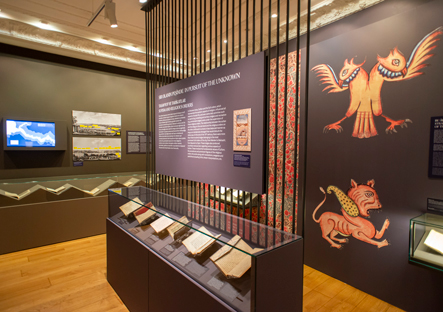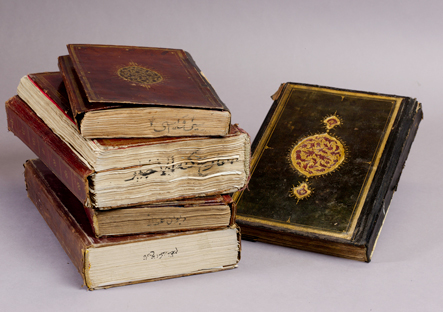
Memories of Humankind
Stories from the Ottoman Manuscripts
Created by manuscripts that were read and circulated in the multilingual society of the Ottoman Empire and the fluid geographies of the early modern period, the manuscript culture gradually lost its importance as the printing press became widespread in the 19th century; it ceased to be a source of information, story-telling, or spirituality for the masses in the 20thcentury, attracting the interest only of collectors. The cultures of writing and reading had changed—books came out of the printer in thousands of copies, all the same; the marginalia written by readers remained limited to their own copy; and the text of the author became untouchable, unalterable.
Modern historiography’s relationship with manuscripts was also affected by these assumptions regarding writing and reading. The literature came to be shaped by the quest for the “most accurate” text, “most valuable” binding, and “cleanest” copy, whereas manuscripts used to be a part of a much more collective world of literacy. Texts changed in the hands of copyists and readers, where readers and authors engaged in a dialogue between lines and in margins. Reading was as collective an act as writing; there were people who read popular stories aloud incoffeehouses, and some readers answered the notes of previous readers.
Recently developed new approaches study this collective culture and enable us to better understand the multilayered world of manuscripts. Such approaches address the history of reading along with the history of manuscripts and consider texts as open-ended creations in motion.
Memories of Humankind: Stories from Ottoman Manuscripts brings together Ibrahim Ağa, the guardian of the Van Citadel who found time to copy manuscripts while on duty; Zübeyde Hanım, whose divan was widely circulated; Yirmisekiz Çelebi Mehmed Efendi, the Ottoman Ambassador to France, who corrected his own manuscript; Rıfat from Kilis, who intervened with the text by scribbling in the margin, “whoever wrote this is wrong”; Enderunlu Fâzıl, whose writings were censored but still made the rounds through word of mouth; and the bookworm who fed its hunger by paying no attention to the “Ya Kebikeç” prayer. The exhibitionpresents a selection from the Suna and İnan Kıraç Manuscripts Collection, inviting the visitor ona journey among texts, objects, and through time; it traces the multilingualism of Ottoman society, daily life, medicine, knowledge of the universe and time, gender and sexuality, while also showing how to recreate Istanbul’s historical landscape using manuscripts.
Memories of Humankind: Stories from Ottoman Manuscripts nudges the door ajar to the memory of humanity, which crystallizes in manuscripts and is worldly and otherworldly, multilingual and multi-religious, urban and rural, unique and ordinary, sometimes alien and occasionally very familiar, fragmentary, incomplete, and always inspiring.







